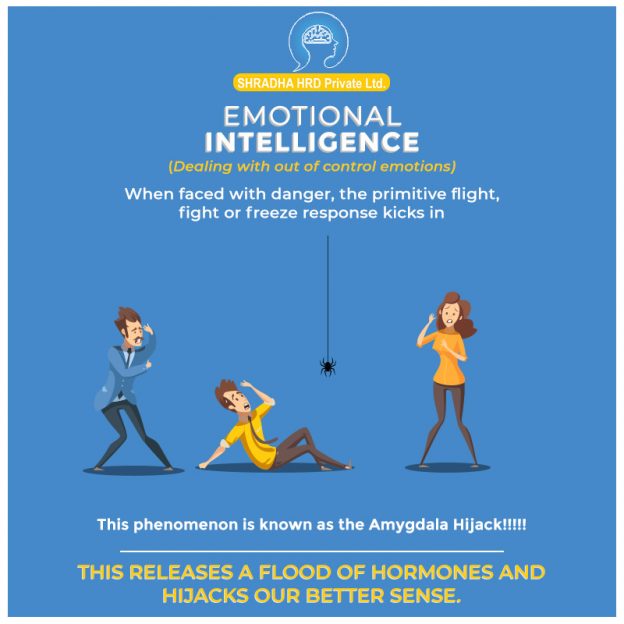Some of us that are die-hard Football lovers, might remember the 2006 World Cup Final game. In front of 28.8 million viewers in 213 countries ZinedineZidane, a world-wide soccer role model, lost his self-control and head butted Marco Materazzi.Zidane was kicked out of the game. France lost the World Cupto Italy and Zidane’s career ended in disgrace and wonderment
“What was he thinking?” Again, he wasn’t.
In organizations where Corporate Governance is very strong, a 10 second outburst can tarnish a leaders’ image forever. Everyone looks at their leadership do live the values that the company espouses. Self awareness of your emotions and learning how to deal with them is critical at any stage in life, more so for leaders.
Dealing with out of control emotions
When faced with danger, the primitive flight, fight or freeze response kicks in. Even though we are not faced with physical danger, anything we perceive as a threat, our mind views as danger. This releases a flood of hormones and hijacks our better sense.
Examples of threatening situations in our daily work life:
1. An angry email from a key stakeholder
2. Being put on the spot to answer an uncomfortable question in front of your team
3. A crisis that came out of the blue
Any of these common everyday situations can release a flood of hormones due to the survival mechanism kicking in. If you are unaware of this and flow with your emotions, you will take actions that will most likely be against your better judgment.
This phenomenon is known as the Amygdala Hijack!!!!!
The Amygdala,an almond-shaped mass of nuclei (mass of cells) located deep within the temporal lobes of the brain. It is involved in many of our emotions and motivations, particularly those that are related to survival.
Dealing with the Amygdala Hijack
1. Become aware of your “hot buttons”: Recognize the situations that cause you to lose your cool. This will help you respond effectively as opposed to react
2. Name the emotion: When faced with threatening situations, research has shown that naming/labelling the emotion helps calm you down
3. Practice using this technique regularly until it becomes a part of your mental routine

